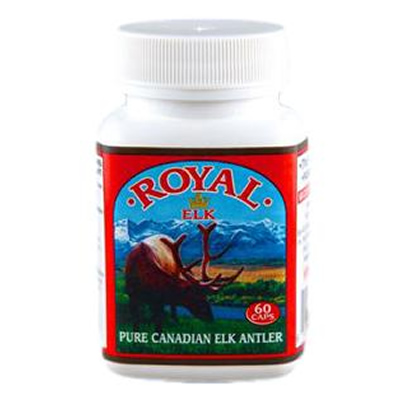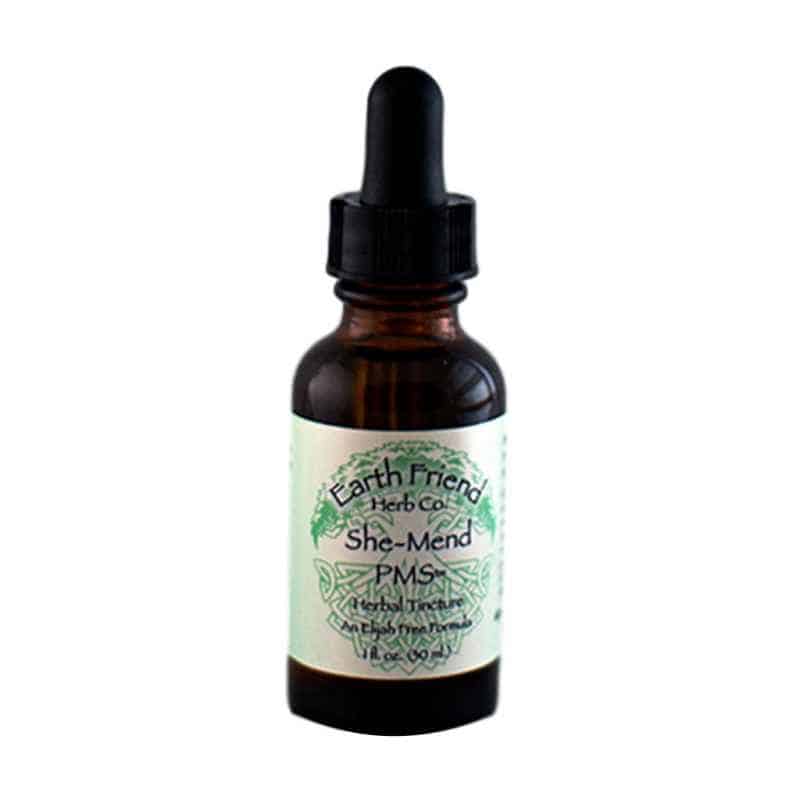No products in the cart.
Hormone Basics
Major Hormones (metabolic) and Minor Hormones (reproductive).
When your hormones are in balance, you feel great. When your hormone production is abundant you feel vigorous, your reactions are fast, and you appreciate beauty all around you. You enjoy life.
There are 6 Major Hormones that determine what happens with the food you eat: will you burn it as energy, use it to build muscle, or store it as fat? These hormones are: insulin, glucagon, growth hormone, thyroid hormone, cortisol and epinephrine (adrenaline).
Your hypothalamus is your weight-regulating center. The hypothalamus and pituitary gland together represent the control center of your endocrine system. It controls your hunger level and your metabolic rate. To change your weight you have to change the set point.
The ratio of pancreas-produced insulin to glucagon determines your energy utilization. Insulin stores energy, glucagon makes it come out of storage (glycogen of fat). If blood sugar levels rise too quickly, it triggers an insulin release that causes the excess glucose to be converted and stored as fat instead of being stored as glycogen in liver and muscle. Glucagon is released when blood glucose levels become too low. Excess insulin triggered by excess carbohydrates will promote fat storage. Glucagon stimulates the breakdown of body fat to be used for energy. Insulin decreases blood sugar by moving glucose into the cells, stimulating glucose burning for energy and increasing glycogen stores by shifting the metabolism from carb-burning to fat-burning.
Growth Hormone (HGH) keeps your body young, trim and fit and able to repair damage fast. As insulin growth factor 1 (IGF-1) it stimulates cell production and rejuvenation, the opposite of sagging skin, thinning bones, lower muscle strength, greater body fat, weaker heart function, lowered immunity, thinning hair, decreased stamina and vigor.Every cell in the body depends upon thyroid hormones for regulation of their metabolism, the conversion of oxygen and calories into energy. Deficient thyroid function will affect your temperature, your blood pressure, your moods, and your long term health.
Your adrenal hormones regulate your response to your environment and your thoughts. These include short term and long term issues. Sudden stress will increase your heart and breath rates and shut down your digestive and repair activity. IF your hormones are not balanced, your body is aging faster than it can be repaired. Minor Hormone imbalance brings night sweats, anxiety, depression, fatigue, loss of energy, headaches, loss of focus and attention, poor muscle tone, decreased exercise tolerance, osteoporosis, rising cholesterol levels, cardiac dysfunction, inability to tolerate stress, memory loss and cognitive decline.
Estrogen, the essence of femininity, makes a woman feel sensual, bringing fullness to the breasts, clarity to the mind, and moisture to the vagina.Progesterone is calming, builds bone, burns fat, improves vascular tone, prevents arterial plaque. Low progesterone causes depression, irritability, anxiety, obsessive behaviors, weight gain, itching, bloating, sweating, digestive problems, flatulence, and loss of memory.
Testosterone increases motivation, assertiveness, control, well-being, and decisiveness. Testosterone helps keep skin supple, bones strong, and moods balanced, figure shapely, and sex enjoyable.Melatonin is cued by darkness to start restoration and regeneration to regulate your sleep and immune system. It increases life span and resistance to cancer.
Pregnenolone regulates brain functions: memory, concentration and mood. It is a precursor to DHEA or progesterone, androgens (sex), estrogens (sex), cortisol (stress), aldosterone (blood pressure).DHEA affects aging, muscle mass, memory, immune system, obesity, dementia, osteoporosis, fatigue and depression. DHEA lowers cholesterol and insulin levels to prevent heart disease and diabetes. DHEA keeps your immune system strong to prevent cancer, and reduces Parkinson’s and Alzheimer’s by protecting your neurons.
Impotence
There are two types of impotence, the inability to orgasm and the far more common inability to get or maintain an erection. The mechanism by which an erection is instigated and maintained is extremely complex. It revolves around initial desire or brain stimuli, hormonal levels and flow, blood vessel and nerve function, etc. Impotence can be chronic or recurring and for many men it may consist of just a single incident. There are many causes of this condition, among these are, diabetes, smoking, circulatory problems, poor diet, severe atherosclerotic obstruction in the iliac arteries, high cholesterol, heart disease, thyroid problems, excess alcohol consumption, recreational and many prescriptive drugs and various psychological factors. Regarding prescriptive drugs, there are over 200 of these that cause or contribute to impotence, such as antihistamines, diuretics, antidepressants, stomach acid inhibitors and anti-hypertensives (to lower blood pressure). The latest figures I have seen show that one in ten males in the UK over the age of twenty-one years suffers from impotency! It was always assumed that the majority of cases of impotence were psychological in origin, however it is now considered that as many of 85% of cases have a physical basis. This physical basis, in turn, is created by severe nutritional deficiencies.
Nutritional or dietary factors are of great importance in the whole sexual process for both females and males. For instance, in males, low testosterone equates with little or no sexual desire. The body requires amongst others, dietary essential fatty acids as a precursor to the manufacture of cholesterol from which testosterone is manufactured. This manufacturing process has many steps and needs to be fueled by the adequate supply of many other different dietary substances. Essential fatty acids also keep the arteries and veins soft and pliable, in this situation blood-flow to the penis is optimized. On the other hand if the arteries are clogged with cholesterol, blood-flow will be diminished – seriously in some cases, lack of blood flow into the arteries and capillaries equals lack of an erection!
Yohimbine, which is extracted from the bark of the West African yohimbehe tree, has been used successfully for centuries in many parts of the world to treat impotence. Such was Yohimbine’s success in the USA that a synthetic (drug) version was produced so that it could be patented and made available on prescription only. This drug is not available in the UK Natural Yohimbine was banned in the UK in 1995. I wonder why? Several herbs are known to help this condition such as wild yam, ashwagandha, schizandra, sarsaparilla, Siberian ginseng, gotu kola and hydrangea. It would be a matter of experimentation to see what works for you.
An American urologist who reviewed the clinical trial literature on the active substance present in Yohimbine made the following interesting observation “My own guess is that yohimbine probably affects in a positive way the many little valves, called arterial sphincters, that regulate blood flow within the penis. The neurological control of those sphincters is critical. That’s the bottom line on whether there will be an erection or not. You may be getting plenty of blood flow in the large arteries and into the smaller arterioles branching out from them-and yet you may not be getting any blood into the network of tiny capillaries (in the penis), simply because the precapillary sphincters have never opened up.”
“Actually, the precapillary sphincters, which control blood flow into the capillaries of the penis, are still a mystery. And these capillaries – spongy areas where blood sort of pours in and out are extremely complicated. There are still many unknown areas in the microcirculation of the penis. But one thing seems certain to my mind, -if yohimbine is producing erections, as we know it does, it must be by affecting all these little valves or sphincters that have to open up to let the blood into the penis, and others that have to close down to keep it inside, if there’s to be an erection. Only that I don’t think that there’s anybody today who knows exactly by what mechanism yohimbine is able to accomplish this.”
Source -: Formula for Life; Ebherd Kronhausen, Phyllis Kronhausen & Dr H.B. Demopoulos. Quill, William Morrow, New York.
I would not be surprised if we see a synthetic version of yohimbine available in the UK in the near future. Many cases of Impotence can be reversed, by dealing with some or all of the factors listed above. Attending to high cholesterol levels and nutritional-dietary factors is of prime importance in my view. If the main artery supplying the penis becomes partially blocked by fatty deposits, no matter what else is done, it will be very difficult for an erection to take place.
Infertility
It has been traditionally thought that infertility is normally a female problem. Over the last twenty or thirty years it has become a male problem every bit as much, if not more so, than a female one. The problem, sorry to say it again, is one of nutritional lack and toxic overload. In 1996 a Horizon documentary ‘Assault On The Male’, shown by the BBC, highlighted the problems (obviously, most of these men would be on a standard western diet). Below are some of the latest statistics regarding their fertility: Against expectation, forty-plus year old males generally have a higher sperm count than twenty-plus year old. A substantial fall in overall sperm counts over the last fifty years. In 1950 there was an average of 100 million sperm per milliliter of ejaculate, in the 1970’s, it was down to 75 million per milliliter and has continued to fall at the rate of two per cent per year since then. Up to fifty per cent of sperm are deformed. It is common to find sperm with no tail, two tails, no head, two heads, very little motility (movement) etc.
The volume of semen has declined by fifty per cent in the same period. Testicular cancer rates have trebled in Britain and the USA in the last thirty years and become the most common cause of cancer in young men. The incidences of undescended testes have also trebled in the last thirty years. An increasing number of babies (and animal offspring) are being born with mixed sexual characteristics. This excellent program went into detail about the reproductive problems caused by certain chemicals acting as synthetic estrogens. The chemicals mentioned are, nonyl phenol, DDT, DDE, kelthane, Heptachlor, kepone, methoxychlor, toxaphane, endosulfan, dieldrin, phenyl phenol, BHA, DES, PCBs, Bisphenol A, and Butyl benzyl phthalate.
Further, it was stated that “the fact that changes in diet in the last fifty years, such as the increased intake of fat (saturated) and protein and the decrease in grain consumption has changed the balance of the gut environment, allowing estrogens to be reabsorbed”. I have been preaching this message for some years – please refer to Chapter Four – Toxic Bowel for helpful hints. Products and foods that are contaminated by these chemicals/synthetic estrogens, include dental resins and sealants, food wrapping, aluminum wrapping, bleach, bleached toilet paper, bleached coffee filters, bleached or dioxin treated tampons, kitchen roll, (non- bleached alternatives can be purchased for most of theses products), pesticides and herbicides, chocolates, crisps, pies, cheeses and most dairy foods. According to the Ministry of Agriculture, high levels of synthetic estrogens are found in some foods.
Dr Richard Sharpe of the MRC Reproductive Biology Unit in Edinburgh, who featured throughout the program stated, with reference to the problem that “dietary changes look (?) to be very important”. Surprised? This toxic assault on the male reproductive system will be mirrored in the female and vice versa. It is not surprising therefore, that for many couples, conceiving a baby, will be almost impossible under these circumstances. Given that there are no internal structural problems with either party and by adhering to the nutritional principles set out in this book, it is highly probable that this situation can be reversed.
Notes: Scientists at the Jessop Hospital for Women in Sheffied, England, have shown that supplementation with vitamin E can significantly improve the sperm function of sub-fertile males. The production and storage of sperm within the scrotum is maximally dependent on a lower than normal body temperature. This is controlled by the muscles in the scrotum that contract to bring the testes closer to the body (warmer) or relax to take them further away (colder). Wearing tight underwear keeps the testes close to the body, and therefore too warm. This has been found to negatively effect sperm counts.
Further reading: The Feminisation of Nature – Deborah Cadbury. Published by Hamish Hamilton. A ‘must’ read.
Excess estrogens – estrogen Dominance
The term estrogen Dominance coined by John Lee, M.D., refers to excessive serum blood levels of this predominately female hormone. This condition affects both females and males in these times. The body, due to their extremely powerful effects, normally tightly regulates hormonal production and secretion. Certain deactivatory and excretion mechanisms exist to deal with normal or slightly abnormal levels of these types of substances. However, in many instances these mechanisms can no longer cope with the extreme overload. Until the industrial revolution came into being, it was all but impossible to obtain excessive estrogen’s by dietary, environmental, or any other means.
Around seventy-five per cent of breast cancers are estrogen dependent. In other words, the cancer cells are literally fed by estrogenic hormones. So, where are we all getting these excessive amounts from? These are some of the answers; certain pesticides and insecticides that are now an integral part of our food chain and water supply, act as synthetic versions of the natural form. Some industrial chemicals such as Nonylphenol and PCBs act similarly. Plastic food containers can leech synthetic forms of them, certain car exhaust fumes do the same thing. Poisons from a toxic bowel can reactivate deactivated estrogens, substantially increasing their blood levels. Prolonged use of HRT and the contraceptive pill also increase estrogen blood levels.
Fiber, of which most people are desperately short, binds with estrogens and carries them out of the body in the stools. The more fiber we get in our diet (within reason) the more deactivated estrogen we are capable of expelling. Estrogens deposit fat in the breasts. The more fat we have in our bodies, the more the potential for an oxidation process to take place. This causes damage from free radical attack. Fats also accumulate excess estrogen and store toxins such as pesticides, which can be strongly carcinogenic (cancer causing).
The body manufactures both Estrogens and progesterone, these hormones must be in balance, or inevitably, problems will occur. John Lee MD, in an effort to highlight the problems caused by increased levels of estrogen in relation to progesterone, lists among others, the following effects of the hormones.







